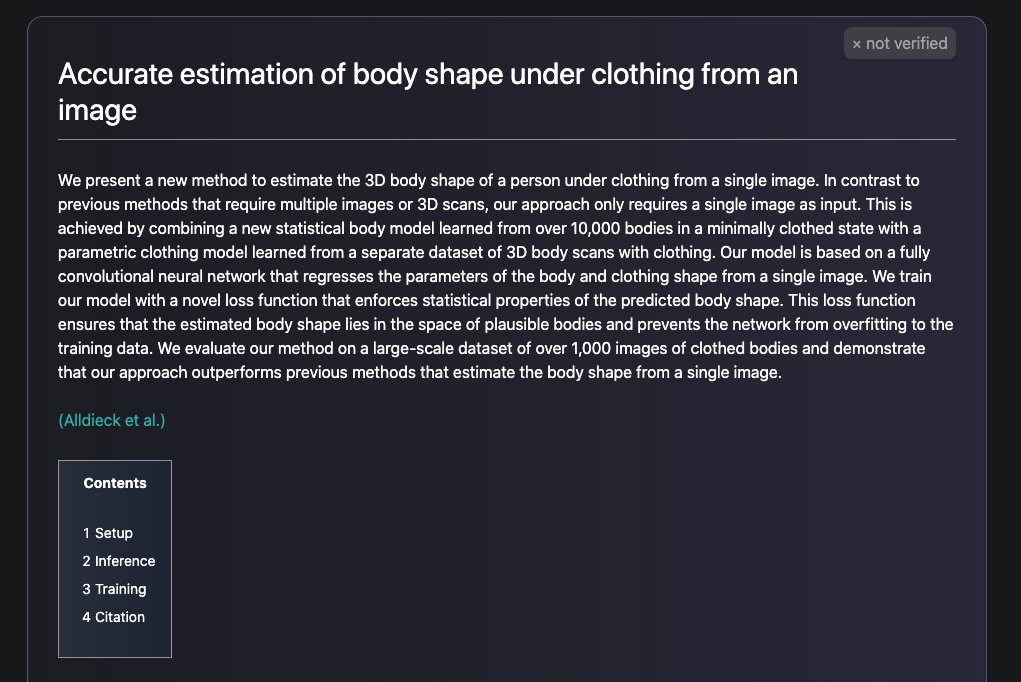
I asked #Galactica about some things I know about and I'm troubled. In all cases, it was wrong or biased but sounded right and authoritative. I think it's dangerous. Here are a few of my experiments and my analysis of my concerns. (1/9)
I entered "Estimating realistic 3D human avatars in clothing from a single image or video". In this case, it made up a fictitious paper and associated GitHub repo. The author is a real person (@AlbertPumarola) but the reference is bogus. (2/9) 

Then I tried "Accurate estimation of body shape under clothing from an image". It produces an abstract that is plausible but refers to
Alldieck et al. "Accurate Estimation of Body Shape Under Clothing from a Single Image"
Which does not exist. (3/9)
Alldieck et al. "Accurate Estimation of Body Shape Under Clothing from a Single Image"
Which does not exist. (3/9)

.@thiemoall publishes in the area (excellent work BTW) so it's on the right track but it has made up this reference. Based on these few tests, I think #Galactica is 1) an interesting research project, 2) not useful for doing science (stick with wikipedia), 3) dangerous. (4/9)
Why dangerous? Galactica generates text that's grammatical and feels real. This text will slip into real scientific submissions. It will be realistic but wrong or biased. It will be hard to detect. It will influence how people think. (5/9)
It offers authoritative-sounding science that isn't grounded in the scientific method. It produces pseudo-science based on statistical properties of science *writing*. Grammatical science writing is not the same as doing science. But it will be hard to distinguish. (6/9)
This could usher in an era of deep scientific fakes. Alldieck and Pumarola will get citations to papers they didn't write. These papers will then be cited by others in real papers. What a mess this will be. (7/9)
I'm sure the authors are aware of the dangers. Every generation comes with the fine print "WARNING: Outputs may be unreliable! Language Models are prone to hallucinate text." But Pandora's box is open and we won't be able to stuff the text back in. (8/9)
I applaud the ambition of this project but caution everyone about the hype surrounding it. This is not a great accelerator for science or even a helpful tool for science writing. It is potentially distorting and dangerous for science. (9/9)
• • •
Missing some Tweet in this thread? You can try to
force a refresh




